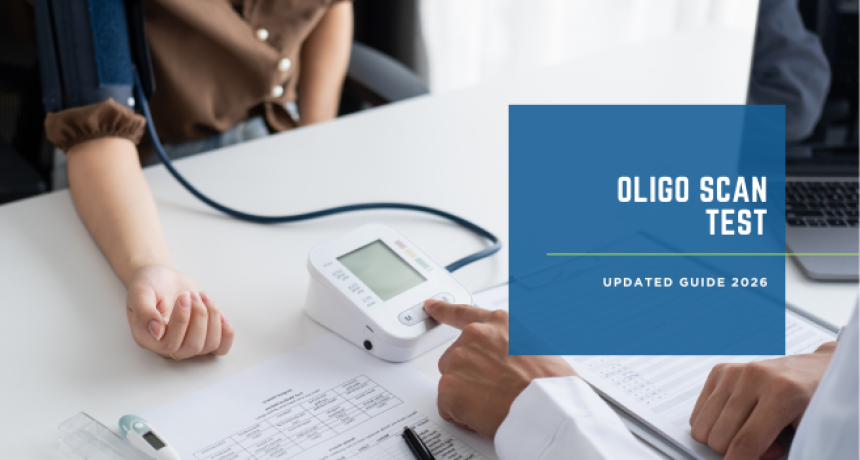Microbiome Test Reviews: Science vs. Myths
2025-03-22 The gut microbiome has become a hot topic in health and wellness, with claims that it influences digestion, immunity, mental health, and even weight management. This has led to a surge in gut microbiome testing—offering insights into your gut bacteria and personalized health recommendations. But do these tests really work? Are they backed by science, or are they just another health trend? In this blog, we separate science from myths, explaining how gut microbiome tests work, what they can (and can't) tell you, and whether they're worth the investment. A gut microbiome test in Delhi analyzes the microorganisms in your gut, primarily using a stool sample. These tests leverage advanced DNA sequencing technologies, such as: ✅ 16S rRNA Sequencing – Identifies bacterial species based on genetic markers. ✅ Metagenomic Sequencing – Provides a deeper look into bacterial functions and diversity. ✅ qPCR (Quantitative PCR) – Measures the abundance of specific bacteria. The results offer insights into your gut diversity, beneficial and harmful bacteria, potential imbalances, and dietary recommendations to improve gut health. What Science Supports These Tests? Research has shown that gut microbiome testing can provide valuable biomarkers for digestive health. Several studies support the link between gut bacteria and various health conditions: 🔹 Gut Bacteria & Mental Health – A 2022 study in Nature Microbiology found that gut bacteria influence mood and anxiety disorders via the gut-brain axis. 🔹 Obesity & Microbiome – A 2023 study published in Cell showed that an imbalanced gut microbiome is linked to weight gain and metabolic disorders. 🔹 Inflammation & Disease – Research in Gut Journal indicates that specific bacterial strains play a role in conditions like IBS, IBD, and autoimmune diseases. These findings suggest that gut microbiome tests can provide useful insights, but their effectiveness depends on the quality of testing, analysis, and actionable recommendations. 🛑 Myth #1: Gut Microbiome Tests Can Diagnose Diseases ❌ Fact: These tests cannot diagnose diseases. They can only highlight imbalances, dysbiosis, and potential risk factors. 🛑 Myth #2: You Only Need One Test for Life ❌ Fact: The gut microbiome is constantly changing due to diet, lifestyle, and medications. Regular testing helps track changes over time. 🛑 Myth #3: All Gut Microbiome Tests Are the Same ❌ Fact: The accuracy and depth of analysis depend on the technology used, the database of bacterial strains, and the quality of research backing the test. 🛑 Myth #4: You Must Follow a Strict Diet Based on Results ❌ Fact: While tests provide dietary recommendations, gut health is influenced by multiple factors, including stress, sleep, and exercise. ✅ Benefits of Gut Microbiome Testing 🔹 Personalized Nutrition: Understand which foods benefit or harm your gut. 🔹 Identifying Dysbiosis: Detect imbalances that could be causing bloating, gas, or IBS symptoms. 🔹 Tracking Gut Health Over Time: See how dietary or lifestyle changes impact your microbiome. 🔹 Targeted Supplement Recommendations: Get insights into probiotics, prebiotics, and digestive enzymes tailored to your gut profile. ❌ Limitations of Gut Microbiome Testing 🔹 Data Interpretation: Not all tests provide actionable recommendations, making expert consultation crucial. If you decide to take a gut microbiome test, consider these factors: ✅ Technology Used: Look for DNA sequencing over standard bacterial cultures. ✅ Depth of Report: Choose tests that provide functional insights rather than just a bacterial list. ✅ Expert Consultation: Look for tests that offer nutritionist or doctor consultations for personalized recommendations. ✅ Clinically Proven Recommendations: Opt for tests that offer science-backed dietary, lifestyle, and supplement guidance. Most at-home tests are not FDA-approved for diagnosis, but they are based on peer-reviewed microbiome research. Yes, many tests analyze your microbiome and recommend specific probiotic strains to restore balance. The accuracy depends on DNA sequencing technology used. Tests with advanced metagenomics and AI-based analysis provide more precise results. While some tests provide easy-to-understand reports, expert consultation can help you make meaningful changes based on your results. For tracking gut health, testing every 6-12 months is recommended. Gut microbiome tests are backed by science and research, but they are not medical diagnostic tools. When chosen wisely, these tests can provide valuable insights into your gut health, guiding you toward better digestion, immunity, and overall well-being. 📌 Interested in testing your gut health? 🔹 Book a Gut Microbiome Test in Delhi Today! 🔹 Consult Our Experts for Personalized Gut Health Insights!Introduction
What Are Gut Microbiome Tests?
The Science Behind Gut Microbiome Testing

Myths vs. Facts About Gut Microbiome Tests
Do Gut Microbiome Tests Really Work? Evaluating Their Benefits
Choosing a Reliable Gut Microbiome Test
FAQs About Gut Microbiome Tests
1. Are gut microbiome tests FDA-approved?
2. Can a gut microbiome test tell me which probiotics to take?
3. How accurate are gut microbiome tests?
4. Do I need a doctor to interpret my results?
5. How often should I test my gut microbiome?
Conclusion: Should You Get a Gut Microbiome Test?
.png)















